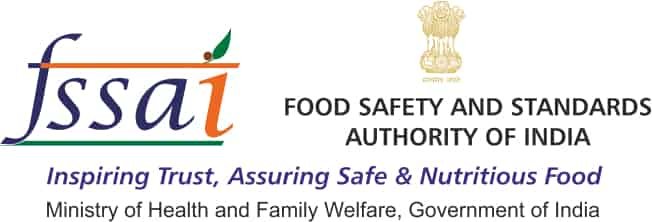
With growing concerns among consumers regarding the food related hygiene, it has become a sine qua non for food product manufacturers to ensure certain safety and hygiene standards. But how can one be assured whether the product they are consuming meets any parameters or not. And what are these parameters, who sets them.
The Food Safety & Standards Authority of India (FSSAI), a body incorporated under section 4 of the Food Safety and Standards Act, 2006 under the Union Ministry of Health & Family Welfare, regulates and monitors the manufacturing, processing, distribution, sale and import of food products in India. It means that if a business wants to sell its food product in India, it has to obtain an approval from FSSAI by fulfilling the safety and scientific standards set by it for that specific product. Once assured, FSSAI registration grants the approval in form of a 14 digit License number under section 31(1) of the act. To obtain the license, the business can apply online on the FSSAI website after checking its eligibility for the same. Section 31(2) has exempted petty business such as street hawkers, vendors, temporary stalls from requiring the said license. Barring them, all other businesses, whether they are involved in manufacturing, processing, distribution, sale or import of any food product, are required to obtain one of the three specified licenses from FSSAI.
A business can apply for any one of the three renewable licenses, whichever it is eligible for on basis of its turnover in Indian Rupees. A small business with turnover of less than 12 lakh can apply for the Basic Registration, which will enable it to sell its product without having to display the registration number on the label. A business with turnover between 12 lakh and 20 crores can apply for the State License which will enable it to sell its product throughout the State while a business with a turnover of more than 20 crores can apply for the Central License which will enable it to sell its product both- throughout the country as well as outside. Both the State license and the Central License holders are required to display the registration number on their product label.
In case a person runs his business without complying with the license requirements, he is liable, under section 63, for imprisonment which may extend to 6 months and also a fine of up to five lakh rupees. On second conviction for this same offence, he will be liable for double the punishment which was earlier imposed under 63, now under section 64. The process of obtaining this license is quite convenient when compared to several other Government related procedures because a business can continue to work even without a license in case there is a delay of more than 60 days on part of the government officials, thus making the process much speedier.
A recent development in this was the set of guidelines issued by FSSAI in view of the Coronavirus pandemic to ensure that there isn’t any spread due to functioning of food manufacturing firms. However, these guidelines are independent from the license requirements and are to be followed even by the present license holders. With such regulations in place, we, as consumers, should, ideally, be assured about the quality of products we intake. But with rise in unfair and unscrupulous practices by many business organizations, there have been several incidents of the product being below standards and yet bearing an (fake one in some cases) FSSAI registration number. Even though there are provisions for dealing with such practices, their implementation still remains inapt. However, with rising consciousness among us, consumers, especially in the post-Covid scenario, there is a sense of expediency in the government officials to ensure proper implementation of the said provisions. When the food products produced in our country are satisfactory in terms of safety and hygiene, it not only gives domestic customers a confidence, but also advances the country’s image in terms of food security and other parameters.










